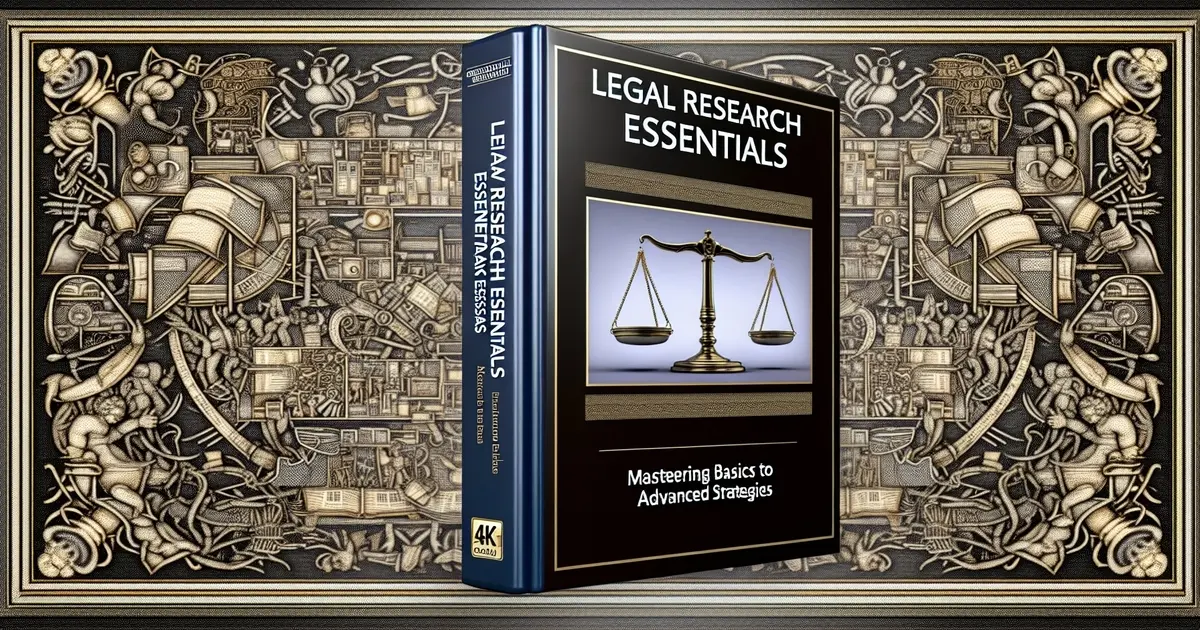Legal Consultation: Essential Guide for Effective Outcomes
In a world where legal dilemmas can spring up as unexpectedly as a pop quiz, understanding the ins and outs of legal consultation, prospective attorney selection, alternative dispute resolution, and the chances of achieving justice have never been more crucial. Gone are the days when seeking legal advice was reserved for the elite or corporations; today, it's an accessible tool for anyone navigating life's complex tapestry of justice, network deadlines, and calls.
From historical courtroom battles that have shaped our understanding of justice to modern-day digital consultations, the evolution of legal services reflects society's ever-changing needs. This post will dive into what you need to know about securing a legal consultation in today’s fast-paced world—without getting lost in jargon or legalese.
Table Of Contents
Understanding Legal Consultation
Legal Advice vs. Information
Legal consultation is about getting professional opinions on law-related matters. It's different from just finding legal information. Legal advice helps you understand what to do in your specific situation.
Professionals like solicitors and lawyers provide this advice. They look into the details of your case and guide you based on the law to achieve your legal goals. On the other hand, legal information is about facts anyone can find. It doesn't tell you what to do with those facts.
Role of Consultants
A legal consultant plays a crucial role in guiding clients through complex laws. They offer specialized advice depending on their area of expertise.
These professionals spend time understanding your issue deeply before advising. This ensures that the guidance you receive is tailored to your unique needs and circumstances.
Types of Consultations
There are many areas within legal consultations, each serving a different purpose:
- Family law
- Criminal law
- Business law
- Intellectual property rights
Each type focuses on specific aspects of the law relevant to various life or business situations.
For example, consulting with a business lawyer will help you navigate corporate laws effectively if you're starting a company.
Preparing for a Lawyer Consultation
Relevant Documents
Before meeting your prospective attorney, gather all necessary documents. This includes contracts, emails, receipts, or any evidence related to your case. Having these items ready will help the lawyer understand your situation better.
It's also intelligent to organize these documents to make them easy to review. You might group them by date or type of document. This organization can save time during the consultation and ensure every detail is noticed.
List of Goals
Write down what you want from the legal consultation. Your goals could range from understanding legal fees to deciding on a course of action for your case.
Having clear objectives helps you and the attorney focus on what matters most during your meeting. It also ensures that you have a clearer idea about how to proceed with your legal matter by the end of the consultation.
Timeline Creation
Prepare a timeline of events related to your case before the phone call or meeting with an attorney. Include dates and brief descriptions of each significant event.
This timeline acts as a roadmap for both you and the lawyer. It provides context and helps identify critical moments that could impact your case's outcome.
Creating this timeline can also jog your memory about details you might otherwise forget when discussing things directly with an attorney.

Questions to Ask a Lawyer During Consultation
Experience Matters
After preparing for your lawyer consultation, it's crucial to dig into the lawyer’s experience. This helps you gauge their capability in handling cases like yours.
Ask directly about how many similar cases they've managed. Also, inquire about their success rate with these cases. Lawyers often specialize in certain areas of law. Knowing this can provide reassurance that they're well-equipped for your situation.
Understanding a lawyer's background gives you insight into their expertise and approach. It also helps set realistic expectations for your case.
Timeline and Outcomes
Discussing the expected timeline and outcomes is another crucial aspect of your consultation.
Firstly, ask for an honest assessment regarding the duration of your case. Legal battles can be lengthy, but an experienced lawyer should offer a rough estimate based on past experiences.
Secondly, discuss potential outcomes. While no lawyer can guarantee results, they should be able to outline possible scenarios based on their knowledge and experience.
Costs Involved
Attorney fees and additional costs must be noted during a legal consultation.
Lawyers may charge differently—some by the hour, others might have flat rates or contingency fees (where they only get paid if you win). Make sure to clarify this upfront.
Also, inquire about other expenses that might arise during the case, such as filing fees or charges for expert witnesses.
This discussion ensures there are no financial surprises down the line.
By asking these questions during a legal consultation:
- You better understand what to expect from both the process and outcome.
- You gain insights into how much it will cost.
- You learn more about who will represent you in court.
Free Legal Information and Consultation Options
Pro Bono Services
Many lawyers offer pro bono services to those who qualify. This means they provide legal help for free or at a reduced cost. To find these services, contact local law firms or legal aid organizations. They often have programs designed to assist individuals based on income or the type of legal issue.
Pro bono services can cover various aspects of law, from family disputes to housing issues. The key is determining if you meet the criteria for assistance. Often, these programs require proof of income and other documentation to ensure their services reach those in need.
Online Resources
The internet has made accessing free legal advice easier than ever before. Several websites offer free legal information and even live chat options with attorneys. These platforms can be an excellent starting point for understanding your legal situation better.
For example, some sites allow users to post questions answered by lawyers volunteering their time online. Others provide extensive articles or guides on specific areas of law, helping you grasp the basics before seeking further consultation.
Community Clinics
Community legal clinics are crucial in providing accessible legal services at no cost or low cost. These clinics often focus on serving residents within a particular area, offering general and specialized advice depending on their expertise.
To benefit from these clinics:
- Search online or call local community centers for information.
- Check eligibility requirements, as some may cater specifically to low-income households.
- Prepare documents related to your case ahead of time for more efficient assistance.
Clinics might also host workshops or seminars to educate the public about common legal issues and rights.
Choosing the Right Attorney for Your Needs
Specialization and Experience
Finding the right person to handle your legal matters is crucial. Not all attorneys are equal in their skill sets or focus areas. Some specialize in family law, while others might be criminal or business law experts.
Choosing someone with a strong background related to your needs is essential. For instance, a divorce lawyer will only help if you face a patent dispute. Also, consider how long they've been practicing. More experience can mean a deeper understanding of the law.
Compatibility and Communication
Your relationship with your attorney should feel comfortable. They should understand your goals and communicate clearly with you. Every person has a unique communication style, so find an attorney who matches yours.
If you prefer emails and they only do phone calls, it could lead to frustration on both ends. Similarly, ensure that their approach to handling cases aligns with what you're looking for—aggressive representation or more measured negotiation tactics.
References and Reviews
Before deciding, check what other clients have said about working with them. Positive reviews from past clients can give you confidence in their abilities.
Feel free to ask for references directly from the attorney; any reputable professional will gladly provide them. This step helps ensure that people like yourself have had good experiences with this attorney before committing.
What Happens During a Legal Consultation
Initial Assessment
During the first part of a legal consultation, your attorney will assess your case. They listen to your story and gather facts. This step is crucial for understanding the situation.
Your lawyer looks for crucial details that might affect your case. They consider laws and precedents related to it. It's like piecing together a puzzle where each fact is a piece.
Discuss Strategies
After assessing, you'll discuss legal strategies. Your attorney outlines several paths you could take. Each option has its own set of pros and cons.
- Pros might include favorable outcomes or lower costs.
- Cons could be risks or longer timeframes.
This discussion helps you understand what lies ahead in each scenario.
Overview Process
Finally, you get an overview of the legal process related to your matter. This includes steps from filing paperwork to court appearances, if necessary.
Your lawyer explains timelines and what they will need from you at each stage. Knowing these steps can make the legal journey less daunting.
Working with Your Attorney for Best Results
Honest Communication
Being honest with your attorney is crucial. It builds trust and strengthens your relationship. When you share all details, even those that seem minor or embarrassing, you help them understand the whole picture. This understanding improves their ability to defend you.
Honesty also involves being upfront about any concerns regarding your case or the legal process. If something doesn't make sense, ask questions. Your lawyer expects this and is there to clarify things for you.
Regular Updates
Staying informed about your case's progress is essential. Regular updates from your lawyer can ease worries and keep you in the loop. These updates might come through emails, phone calls, or meetings.
You should also provide updates from your end if anything changes on your side that could affect the case. For instance, receiving relevant documents or encountering new witnesses can be pivotal information for your attorney.
Collaborative Strategy
Working together on strategy adjustments is critical to navigating legal challenges successfully. Sometimes, strategies need tweaking based on how cases evolve. This collaboration ensures that the client and attorney are aligned in their approach toward achieving the best possible outcome.
Developing a plan of action together allows for a tailored approach that considers all angles of a situation. It's like building a custom solution rather than using a one-size-fits-all strategy.
Here are some benefits of collaborating closely with your lawyer:
- Improved chances of success
- A more personalized defense strategy
- Better understanding and management of expectations
Here are steps to ensure effective collaboration:
- Share all relevant information openly.
- Discuss potential strategies frankly.
- Agree on regular intervals for communication and updates.
Remember, working closely with an attorney does not just mean leaving everything up to them after signing a contract or paying retainer fees; it means being an active part of the team aiming for success. By maintaining honesty in communications, regularly updating progress, and collaborating on strategic adjustments as needed, you enhance the potential outcomes and enrich the client-lawyer relationship.

Getting the Most from Your Consultation
Clear Goals
Setting clear goals is crucial for a successful legal consultation. Before your meeting, think about what you want to achieve. This could be understanding your legal options, getting advice on a specific issue, or planning your next steps in a case.
Having a list of objectives makes the consultation more focused. It helps both you and the attorney understand the desired outcomes. This clarity can save time and ensure all critical points are covered during your limited time together.
Note-Taking
Taking notes during your consultation is invaluable. It lets you capture details that might be forgotten after the meeting ends. Write down key points, advice given, and any actions the attorney suggests.
Notes serve as a reference for future decisions or discussions with other stakeholders involved in your legal matter. They also help maintain accuracy when recalling information shared during the consultation.
Ask Questions
Don't hesitate to ask for clarification if something isn't clear to you during the consultation. Legal terms can be complex, and it's vital that you fully understand every aspect of what's being discussed.
Asking questions not only clarifies doubts but also deepens your understanding of your situation from a legal perspective. It strengthens client-attorney communication, which is fundamental for building an effective client relationship.
Here are some tips to maximize the benefits of asking questions:
- Prepare questions beforehand based on preliminary research.
- Focus on how different scenarios might affect potential outcomes.
- Inquire about possible next steps and their implications.
Resolving Legal Matters Effectively
Legal Strategies
After getting the most from your consultation, following through with agreed-upon legal strategies is crucial. This commitment ensures you're on track to meet your legal goals. Sticking to the plan is critical, whether it is a business dispute or a personal issue.
A clear strategy helps address concerns efficiently. For example, understanding and agreeing to this approach can save time and resources if your lawyer suggests alternative dispute resolution (ADR) for a faster settlement. It’s about finding the right path forward in each unique situation.
Law Updates
Staying informed about changes in relevant laws or regulations is essential. Laws evolve, impacting how cases are handled and resolved.
For instance, new business regulations could affect ongoing contracts or disputes. By keeping updated, you ensure that your actions remain compliant and effective under current law. Your legal team should help by providing timely updates and advice.
Decision Points
Understanding when to negotiate, settle, or proceed to trial is critical in resolving legal matters effectively. Each option has pros and cons, depending on the case.
- Negotiation offers a way to resolve issues without court involvement but requires a willingness from both parties.
- Settlements can expedite resolution but might only partially satisfy some parties.
- Trials, while potentially offering full justice, are lengthy and costly processes.
Choosing the best course requires careful consideration of these factors alongside expert advice from your legal team.
Closing Thoughts
Navigating the legal landscape can feel like trekking through a maze blindfolded, but armed with the proper knowledge and questions, you're setting yourselves up for success. You've got the roadmap from understanding legal consultation to picking the perfect attorney for your unique situation. Remember, it's not just about getting through the door but making every moment count once you're in. Think of it as a two-way street—your preparation meets their expertise to achieve the best possible outcome.
So, what's next? Don't let this be just another read. Take action. Whether it's jotting down your questions, researching attorneys, or scheduling that all-important consultation, step forward. Your legal journey is personal and pivotal; ensure it starts correctly. Let's turn those legal challenges into triumphs together.
Frequently Asked Questions
What is a legal consultation?
A legal consultation is like a roadmap for your case. It's when you sit down with a lawyer to understand your situation, get advice, and determine the next steps.
How should I prepare for my lawyer consultation?
Think of it as prepping for an important test. Gather all relevant documents, jot down key facts about your case, and list any questions you have. This way, you're ready to dive deep from the get-go.
What are some key questions to ask about client relationships, answers, and reviews during my phone call consultation?
Focus on what matters: Ask about their experience with cases like yours, the potential outcomes of your case, how they communicate updates, and, of course, how billing works. It’s like interviewing them for the job of representing you.
Are there free options available for legal consultations?
Yes! Many lawyers offer initial consultations at no charge or low-cost legal clinics that can provide guidance. It's like getting a sneak peek before committing.
How do I choose the right attorney for me?
It’s like finding the perfect pair of shoes - they must fit just right. Consider their expertise about your needs, their communication style, and whether you feel comfortable with them handling your case.
What happens during a legal consultation?
Imagine it as laying out all the pieces of a puzzle on the table. You’ll discuss details about your situation while the lawyer assesses everything and provides possible strategies moving forward.
How can I work best with my attorney after hiring them to manage legal fees, strengthen our client relationship, achieve legal goals, and adhere to our contract?
Keep communication lines open; be honest and upfront about every detail related to your case. Think teamwork - both sides playing their part ensures smoother sailing towards resolving your matter.
Related Post
Mediation Services
Have you ever found yourself in a sticky situation where every conversation, especially about news, phone changes, or specific needs, feels like walking on eggshells?
Read MoreLegal Research Essentials
Did you know that many legal professionals admit to facing challenges during legal research? It's not just about digging through hefty law books on legal topics anymore; it’s an art and science combined, requiring sharp skills and the right tools to rule effectively.
Read MoreDocument Drafting
Did you know that a whopping 90% of professionals struggle with document drafting, writing drafts, and revision at some point in their careers as writers?
Read MoreRepresentation in Court
Navigating the maze of legal battles, the concept of representation in court, including substitute counsel and representative roles during a trial before a magistrate judge, has evolved significantly from its rudimentary origins.
Read MoreLegal Services
Why settle for less? Finding the proper independent nonprofit support can make all the difference between success and addressing legal problems and stumbling blocks.
Read MoreLawyer Fees Explained
Navigating the world of legal services can often feel like stepping into a maze, especially when it comes to understanding different lawyers' fees, which range from excessive attorney charges to excellent attorney rates and even fees set by attorney authors.
Read More






